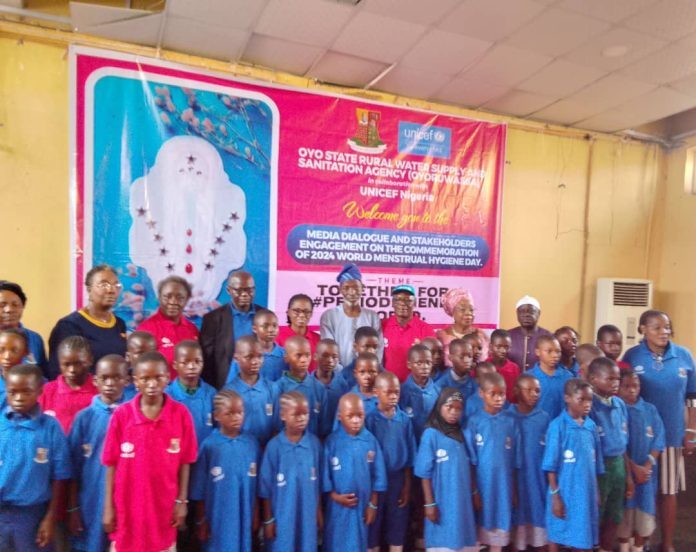Stigmatisation, misinformation and inadequate access to resources have been identified as some factors undermining the ability of many to manage their menstruation healthily and respectfully.
The Oyo State Commissioner for Health, Dr Oluwaserimi Ajetunmobi, marked the factors at a stakeholders’ engagement to commemorate the 2024 World Menstrual Hygiene Day.
The engagement was organised by the Oyo State Rural Water Supply and Sanitation Agency (OYORUWASSA), in collaboration with the United Nations Children’s Fund (UNICEF) Nigeria.
The Menstrual Hygiene Day, dedicated to promoting better understanding about menstruation, is observed every May 28.
The day is also used to raise awareness about the importance of good menstrual hygiene and to break down existing social taboos associated with menstruation.
The 28th is chosen as menstrual hygiene day because it represents the average length of a menstrual cycle.
The commissioner says the Day’s theme, “Together for a PeriodFriendly World”, resonates with the world’s shared vision where every female can manage her menstruation with dignity, confidence, and safety.
Ajetunmobi called for the integration of comprehensive menstrual education into the school curricula and community programmes to dispel myths and normalise conversations about menstruation.
“By educating our girls, and even our boys, we foster a supportive environment where menstruation is understood and respected.
“Ensuring that menstrual products are accessible and affordable is a fundamental right.
“Governments, NGOs, and private sectors must collaborate to provide free or subsidised menstrual products to those in need.
“Schools, workplaces, and public spaces must be equipped with clean and private restrooms with adequate water supply and disposal options.
“Some of our public schools lack adequate water, sanitation and hygiene services, crucial to enable girls and female teachers to manage menstruation.
“We need to break the silence; menstruation should not be a taboo topic. We need to create an open dialogue where people feel comfortable discussing their menstrual health without fear of ridicule or shame,” she said.
She urged community leaders, influencers, and organisations to be actively involved in promoting menstrual health by creating supportive networks.
These networks, she said, would be to ensure that no girl or woman felt isolated or ashamed because of her period.
The UNICEF WASH Specialist, Mr Monday Johnson, called for the support of parents, especially fathers, for the girl-child during her menstrual period.
According to him, research has shown that fathers’ voice in supporting girls during menstruation has been low.
“We need to have voices of parents, boys, governments and NGOs supporting girls during menstruation against all taboos and myths about menstruation,” he said.
Earlier, the Chairman of OYORUWASSA, Mr Babalola Afobaje, said that menstruation in women should not be seen as a disease or burden.
He said that sadly, the level of stigmatisation against women during menstruation remained high.
He, however, commended UNICEF for championing a campaign for menstrual hygiene in Nigeria.




